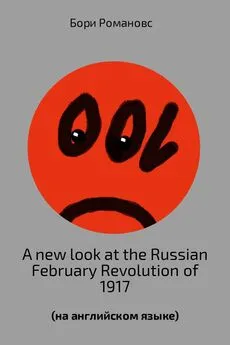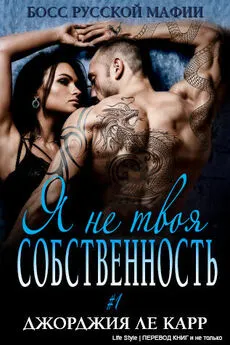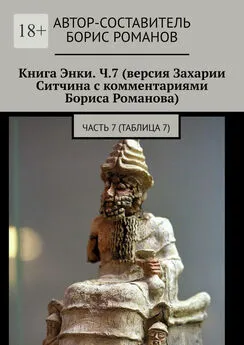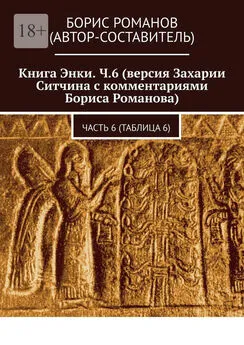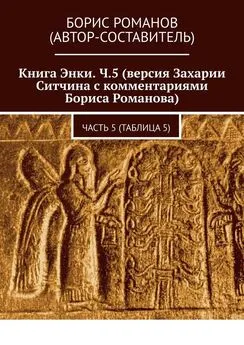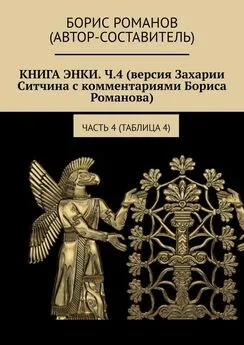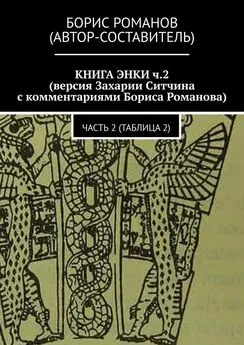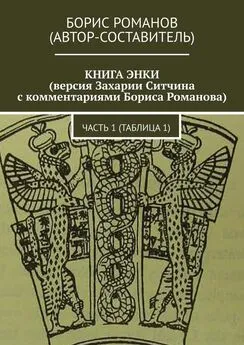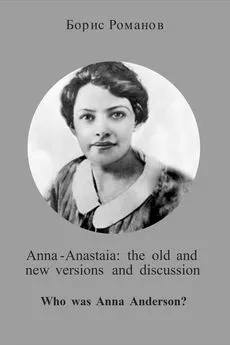Борис Романов - A new look at the Russian February Revolution of 1917
- Название:A new look at the Russian February Revolution of 1917
- Автор:
- Жанр:
- Издательство:Литагент Selfpub.ru (неискл)
- Год:2017
- ISBN:нет данных
- Рейтинг:
- Избранное:Добавить в избранное
-
Отзывы:
-
Ваша оценка:
Борис Романов - A new look at the Russian February Revolution of 1917 краткое содержание
A new look at the Russian February Revolution of 1917 - читать онлайн бесплатно ознакомительный отрывок
Интервал:
Закладка:
A new look at the Russian February Revolution of 1917.
In recent years in Russia, there is formed a new look at the causes of the revolution in February 1917 and the fall of the monarchy on March 2, 1917. Of course, the fact that at the end of the First World War four monarchies fell (Russia, Germany, Austria-Hungary and Turkey), this indicates tectonic shifts in world history. However, the revolutions in each of these countries had their own peculiarities. Russia is the only country of the Entente (the camp of the victors), which underwent a revolution and then collapsed – although its resources were the largest among all the warring countries, and the hardships of the war were the least.
In this brochure we will try to understand these contradictions and reveal the true reasons for the conspiracy against the last Russian emperor Nicholas II. I decided to present here (briefly) the history of the Russian catastrophe of 1917 according to my big book "The Emperor Who Knew His Fate. And Russia, which did not know "(2012, published by BHV-Petersburg) – by the way, all sources are given in this book (in its third part), and I give these source here too (at the end of the text below).
Let's begin, of course, with a turning point in the destinies of the world of 1914.
Economy and level of life in Russia by 1914.
By the beginning of the First World War, Russia was among the five most developed and relatively prosperous countries in the world. Of course, in absolute terms in many respects, Russia lagged far behind the United States, Britain and Germany, but in terms of the growth rates of industry and the economy as a whole came out on top in the world. According to both Western and Russian economists of thouse time, in 20-30 years Russia would be up a hegemon in Europe in all indicators of the national economy. In 1912/13 the famous French economist Edmond Thery get commissioned a survey of the Russian economy on behalf of the French government. Noting remarkable progress in all areas, Thery concluded: " If the affairs of the European nations will go from 1912 to 1950 in the same way as they went from 1900 to 1912, Russia will dominate Europe in the middle of the current century both in political and economic so and financial ly." In his book "The Economic Transformation of Russia" [113], he summed up Russia's astounding successes in all areas: " There is no need to add that no people in Europe can boast of such results. "
The standard of living of the Russian workers by 1914 was no worse than the standard of living of workers in the most developed countries of Europe, and was approaching the standard of living of workers in the United States [111] [112]. Literacy of the population in 1914 still lagged far behind the developed countries of Europe and the USA (literacy of recruits was about 75%) [15], but the enrollment of schoolchildren with elementary education was growing rapidly, and by 1917 in the European part of Russia, among boys the coverage were already approaching to 90 %. [98] Higher and secondary education in Russia in terms of level and coverage were no worse than in Europe, and in the field of technical education and better. [98] Training in comparison with the countries of Europe or the United States was inexpensive. The proportion of students from workers and peasants increased every year, and by 1917 was comparable to the level of the 1970s in the USSR. [24] Rapid development in the early twentieth century there were and the formation of peasants in agricultural technology and collective cooperation.
Stolypin's reforms, contrary to Soviet myths, did not come to naught after the death of Stolypin (in 1911), and just by the beginning of the First World gave their main fruits. [39] During the period of the WWI, the standard of living of peasants grew even more strongly (thanks to military supplies). Agricultural and credit cooperation also developed rapidly, and by 1917, according to the level of cooperation in agriculture, Russia was the first in Europe. [40]
The political system of Russia after 1906 was a Duma monarchy (close to the constitutional monarchy). Since June 1907, the electoral law was close to English, but the emperor in this Duma monarchy had much greater rights than the English queen (but much smaller than Putin in Russia, especially after 2012).
Freedom of speech, press, rallies and demonstrations were real, as was the multiparty system. Social insurance and working legislation, according to the American President Taft, were the best in the world at that time. [18] [75] Trade unions developed and strengthened rapidly. Courts were really independent (since the 70-ies of the XIX century). The number of officials per capita was less than in the developed countries of Europe (and much less than immediately after 1917 in the Soviets-USSR) [68] [82]
Of course, at the beginning of the twentieth century the situation of workers in all developed countries still left much to be desired, but in Russia after 1917 it became much worse than under Nicholas II (the standard of living of workers and peasants was restored by the end of the NEP (by 1927), but then again began to fall and reached a minimum in 1940 (the workers – twice as bad as 1913, the peasants – and much lower and worse). [87] The working conditions of the workers in the USSR were worse than in tsarist Russia right up to the beginning of the mass Housing construction under Khrushchev (in the late 1950's). [27] [46] During twenty years of government of Nicholas II the population of the empire increased by more than fifty million people – by 40%, the natural increase of the population exceeded three million a year.In addition to the natural increase, the general level of well-being increased significantly: for example, deposits in state savings banks increased from three hundred million in 1894 to two billion rubles in 1913. [79]
Let us also note that at the International Congress of Criminalists, held in Switzerland in 1913, the Russian detective police were recognized as the best in the world in the detection of crimes.
Main problems of Russia by 1914\1917.
In addition to the problems common to all developed countries of the time (a long of the working day and economic strikes), in Russia there were four more significant problems:
* High corruption among low strata officials and police (corruption in the middle strata was low, and it was almost zero at the top echelons before the First World war).
* The long-held conviction of the majority of the peasants that all of their main problems can be solved by redistribution of "master's" lands ("black redistribution") – although in fact already by the beginning of the twentieth century, peasants already owned 80-85% of all lands for agricultural purposes, [92] and after the Bolshevik decree on land, the real increase in peasant allotments was only 16.3% [47, p. 72].
At the same time, the RSDLP (both the Bolsheviks and the Mensheviks) had actively propagated the idea of a "black redistribution" until October 1917, poking into class privileges and the gap between educated and needy classes. Although this gap after the revolution of 1905-1907 was steadily declining year by year and social lifts worked really well by 1917, but "class hatred" was actively and constantly fueled by the revolutionary parties (let remember that before the WWI the Social Democrats had their faction in the Duma, and legally (and even more illegally) published their newspapers).
* Contradictions between Moscow (Old Believer, paternalistic in ideology) and Petersburg (pro-European, liberal) trade and industry groups. As shown in recent years by Dr. A.V. Pyzhikov, it is these contradictions (namely, Moscow merchants and industrialists from Old Believers) that played a significant role in all three Russian revolutions of 1905-1917 [Pyzhikov AV Peter-Moscow. The battle for Russia / A. V. Pyzhikov. – M .: Olma Media Group, 2014.].
Attempts prevent war.
Let's start with the fact that, contrary to known myths, Nicholas II did everything possible to avoid a world war – beginning with the Hague Peace Conference convened on his initiative of 1898, and then in the years of the Balkan wars (1912-1913), and literally up to the last day before the start of the WWI. Really, two days before the start of the WWI, on July 29, 1914, Nicholas II has suggested Kaiser Wilhelm to convey the Austro-Serbian dispute to the Hague International Tribunal – but the Kaiser actually had not regected any answer this peaceful path. [1] [3] [5] [19] ] [47] [80] This fact from their correspondence became known to the world community in January 1915 and was the cause of a major international diplomatic scandal.
Burden of war and life's level of the people to 1917
(According to my materials of Wikipedia's article on the premises of the February Revolution).
Comparing Russia with other belligerent countries, historian S. V. Volkov wrote that the burden and trials on the Russian economy was lower than in other countries, both in the Allied camp and among its opponents; that there were no objective preconditions for the revolution, that Russia's military position on the eve of the revolution did not give cause for concern, and comparing the burden on the human resources of the countries participating in the First World War, he cited such figures [Volkov, S.V. "The Forgotten War", 2004.]:
<>
Thus, the hardships of the war in Russia were much less severe than in Austria-Hungary and Germany or France, and no more severe than in England.Nevertheless, unlike these countries, in Russia, almost from the very beginning of the war, a conspiracy against the supreme authority (against Nicholas II) was brewing, and by the beginning of 1917 this plot had found a real plan.
…
Ten years after the catastrophe of 1917, Winston Churchill wrote about Russia and Nicholas II: [Winston Churchill. The World Crisis 1916-1918. Vol.1 N.Y. 1927. (P.227-228)]
“ It is the shallow fashion of these times to dismiss the Tsarist regime as a purblind, corrupt, incompetent tyranny. But a survey of its thirty months' war with Germany and Austria should correct these loose impressions and expose the dominant facts. We may measure the strength of the Russian Empire by the battering it had endured, by the disasters it had survived, by the inexhaustible forces it had developed, and by the recovery it had made. In the governments of states, when great events are afoot, the leader of the nation, whoever he be, is held accountable for failure and vindicated by success. No matter who wrought the toil, who planned the struggle, to the supreme responsible authority belongs the blame or credit.
Why should this stern test be denied to Nicholas II? He had made many mistakes, what ruler has not? He was neither a great captain nor a great prince. He was only a true, simple man of average ability, of merciful disposition, upheld in all his daily life by his faith in God. But the brunt of supreme decisions centred upon him. At the summit where all problems are reduced to Yea or Nay, where events transcend the faculties of man and where all is inscrutable, he had to give the answers. His was the function of the compass needle. War or no war? Advance or retreat? Right or left? Democratise or hold firm? Quit or persevere? These were the battlefields of Nicholas II. Why should he reap no honour from them? The devoted onset of the Russian armies which saved Paris in 1914; the mastered agony of the munitionless retreat; the slowly regathered forces; the victories of Brusilov; the Russian entry upon the campaign of 1917, unconquered, stronger than ever; has he no share in these? In spite of errors vast and terrible, the regime he personified, over which he presided, to which his personal character gave the vital spark, had at this moment won the war for Russia.
Читать дальшеИнтервал:
Закладка:
